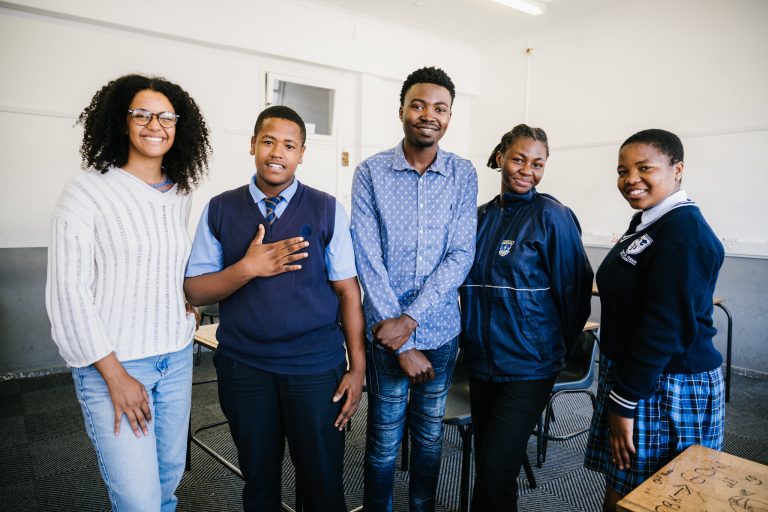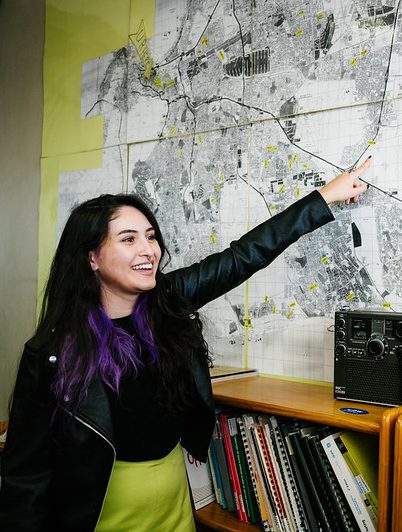RESOURCES
2024-12-12
Sustainability Issues: Empowering the Next Generation of Global Changemakers
Explore pressing sustainability issues and how youth-driven programs are tackling global environmental threats.
Published by Tilting Futures

Sustainability issues present some of the most complex challenges of our time, affecting the environment, the economy, and society. These interconnected problems demand urgent attention, as their impact grows more significant with each passing year. From climate change to pollution, deforestation to biodiversity loss, these crises do not exist in isolation. They affect every corner of the globe and pose threats to the health and well-being of both present and future generations.
The Urgency of Addressing Sustainability Issues
Global Environmental Crisis Overview
The global environmental crisis encompasses a wide range of sustainability issues that are inextricably linked. Climate change, caused by the emission of greenhouse gasses like carbon dioxide and methane, has triggered rising global temperatures, melting ice caps, and more frequent extreme weather events such as hurricanes, floods, and droughts. The effects of climate change are far-reaching and compound other sustainability issues such as deforestation and biodiversity loss.
Deforestation continues to accelerate, leading to significant losses in biodiversity and contributing to climate change by releasing carbon previously stored in trees. The destruction of forests eliminates habitats for countless species, pushing many to the brink of extinction. At the same time, pollution—whether in the form of plastic waste, air contamination, or water pollution—further exacerbates environmental degradation and poses a direct threat to human health. These sustainability threats do not operate in isolation but feed into one another, creating a cascade of problems that jeopardize ecosystems worldwide.
The Role of Youth in Global Change
In this time of crisis, young people are stepping up to lead the charge against sustainability issues and advocating for sustainability. Across the globe, young leaders are mobilizing their communities, advocating for policy changes, and pushing for innovations that promote sustainability. Today’s youth are uniquely positioned to drive this change, fueled by a deep sense of urgency to protect their future.
Tilting Futures fosters this potential through education, hands-on experience, and cross-cultural immersion. By participating in Take Action Lab, young people gain the skills and perspectives necessary to tackle sustainability challenges head-on. Programs like these prepare the next generation to make meaningful contributions to solving the global environmental crisis, equipping them with the tools they need to lead change. Learn more about the importance of hands-on learning here.
Key Sustainability Challenges Facing the World Today
Climate Change as a Driving Force
Climate change remains one of the most significant forces driving sustainability issues. Global temperatures continue to rise, leading to the melting of polar ice caps, rising sea levels, and increasingly severe weather patterns. These environmental changes threaten coastal cities, agricultural systems, and natural ecosystems, making climate change one of the greatest challenges to sustainable development.
The effects of climate change are wide-ranging and exacerbate other environmental problems. For instance, warmer temperatures can lead to more extensive droughts, which in turn affect agricultural productivity and increase the risk of forest fires. Addressing climate change is essential not only for stabilizing global temperatures but also for preventing further damage to ecosystems and human communities.
Pollution and Waste Management
Pollution is another critical sustainability issue that threatens both human health and the environment. Air pollution, primarily from industrial emissions and vehicle exhaust, contributes to millions of premature deaths each year due to respiratory diseases and cardiovascular problems. Meanwhile, water pollution from agricultural runoff, industrial waste, and untreated sewage contaminates freshwater supplies, threatening both humans and aquatic life. Additionally, plastic pollution has become a global crisis, with millions of tons of plastic waste entering the oceans each year, harming marine species and disrupting ecosystems.
Efforts to manage pollution and waste more effectively are crucial for mitigating their impact. This includes transitioning to cleaner energy sources, reducing single-use plastics, and implementing sustainable waste management practices. These actions will help reduce the strain on our ecosystems and ensure healthier living conditions for future generations.
Deforestation and Habitat Loss
Deforestation is one of the most visible forms of environmental degradation. Forests play a critical role in absorbing carbon dioxide and regulating the Earth’s climate. However, they are being cleared at an alarming rate for agriculture, urban development, and logging. The loss of forests not only contributes to climate change by releasing stored carbon but also leads to the destruction of habitats for countless species.
Efforts to combat deforestation include global reforestation initiatives and the promotion of sustainable land management practices. These efforts are critical for protecting biodiversity and restoring ecosystems. Tilting Futures engages students directly in these efforts, providing hands-on experience in conservation and reforestation projects through their gap year programs. To learn more about environmental issues and how Tilting Futures is addressing them, check out this resource.

Considering a semester abroad?
See how Take Action Lab could align with your goals.
Addressing Sustainability Challenges through Innovation
Renewable Energy and Electrification
One of the most promising solutions to sustainability issues is the transition to renewable energy sources such as solar, wind, and hydroelectric power. These energy sources offer a cleaner alternative to fossil fuels, which are the primary contributors to greenhouse gas emissions and climate change. As the cost of renewable energy continues to decrease, more countries are investing in these technologies to reduce their reliance on fossil fuels.
Electrification, particularly in the transportation sector, is another critical development in the fight against climate change. The adoption of electric vehicles (EVs) is growing rapidly, supported by advances in technology and government policies aimed at reducing emissions. This shift to electrification not only reduces greenhouse gas emissions but also helps reduce air pollution in cities, leading to improved public health outcomes.
Sustainable Agriculture and Food Systems
Agriculture plays a significant role in sustainability issues. Unsustainable farming practices contribute to deforestation, soil degradation, and water pollution. However, sustainable agriculture practices, such as regenerative farming and vertical farming, offer promising solutions. These methods focus on restoring soil health, conserving water, and minimizing chemical inputs.
Additionally, efforts to reduce food waste are gaining momentum. It is estimated that nearly one-third of all food produced globally is wasted, contributing to unnecessary carbon emissions and resource depletion. Tilting Futures’ programs place a strong emphasis on sustainable food systems, offering students the opportunity to learn about innovative agricultural practices that minimize environmental impact. Find out more about environmental solutions and sustainability efforts through Tilting Futures here.
The Role of Education and Hands-On Learning in Sustainability
The Impact of Immersive Learning on Personal Growth
Immersive learning experiences are transformative, helping students develop the skills and perspectives necessary to tackle sustainability issues effectively. Tilting Futures’ Take Action Lab is designed to provide students with a deep understanding of global challenges by placing them in real-world contexts where they can engage directly with environmental issues.
Through these experiences, students not only learn about sustainability but also develop a sense of agency and purpose. Immersive learning fosters personal growth, equipping participants with the confidence to take action on the issues they care about. This hands-on approach creates informed and empowered changemakers who are ready to make a lasting impact on the world.
Apprenticeships in Sustainability
Apprenticeships are an essential component of Tilting Futures’ approach to sustainability education. By partnering with local organizations focused on conservation, renewable energy, and sustainability initiatives, Tilting Futures provides students with hands-on experience in the field. These apprenticeships allow participants to apply their knowledge in practical settings, gaining valuable skills that will serve them in their future careers.
Whether students are working on reforestation projects, supporting sustainable agriculture, or promoting renewable energy adoption, their work makes a tangible impact on global sustainability efforts. These apprenticeships not only benefit the environment but also help students build meaningful connections and networks that will support them throughout their careers.
Empowering Global Citizens through Tilting Futures
Building a Global Network of Changemakers
Tilting Futures is more than just an educational program—it’s a global community of changemakers. Students from diverse backgrounds come together to collaborate on sustainability projects, learn from one another, and build lasting relationships. This network of young leaders is united by a common goal: to create a more sustainable and equitable world.
By fostering cross-cultural understanding and collaboration, Tilting Futures helps students broaden their perspectives and gain a deeper appreciation for the complexities of global sustainability issues. The connections formed during the program often lead to continued collaboration on sustainability initiatives, amplifying the impact of their work long after the program ends.
Alumni Success Stories
The success of Tilting Futures’ programs can be seen in the accomplishments of its alumni. Many former participants have gone on to pursue careers in environmental conservation, renewable energy, and sustainable development. Their experiences in Take Action Lab have shaped their career paths and deepened their commitment to solving global sustainability threats.
The success of Tilting Futures’ programs can be seen in the accomplishments of its alumni. Many former participants have gone on to pursue careers in environmental conservation, renewable energy, and sustainable development. Their experiences in Take Action Lab have shaped their career paths and deepened their commitment to solving global sustainability threats.
These alumni are making significant contributions to the sustainability sector by applying the hands-on experience and cultural insights they gained during their time with Tilting Futures. For instance, some alumni have pursued careers in environmental policy, working on regulations that promote renewable energy and sustainability initiatives. Others have taken leadership roles in NGOs that focus on conservation, helping to protect endangered ecosystems and promote sustainable land-use practices.
Tilting Futures is proud to have fostered this global community of changemakers, and their continued success is a testament to the impact of immersive learning and hands-on experience in addressing sustainability challenges. These alumni stories highlight how young leaders can make a lasting difference in the world when given the right opportunities and support.
Become a Changemaker with Tilting Futures
Sustainability issues represent one of the most critical challenges of our time, affecting every corner of the globe. As climate change, pollution, deforestation, and biodiversity loss continue to threaten ecosystems and human communities, the need for urgent and innovative solutions has never been more apparent. Young people are stepping up to meet these challenges, leading the charge toward a more sustainable future.
Tilting Futures is at the forefront of this movement, empowering the next generation of global changemakers through immersive learning and hands-on experience. By participating in Take Action Lab, students gain the knowledge, skills, and networks they need to tackle sustainability issues head-on. These programs are not only preparing young people for future careers in sustainability but are also helping to create a global community of leaders committed to making a positive impact on the world.
If you’re ready to take action and join a network of like-minded changemakers, Apply Now for Take Action Lab. Together, we can build a more sustainable future for all.


